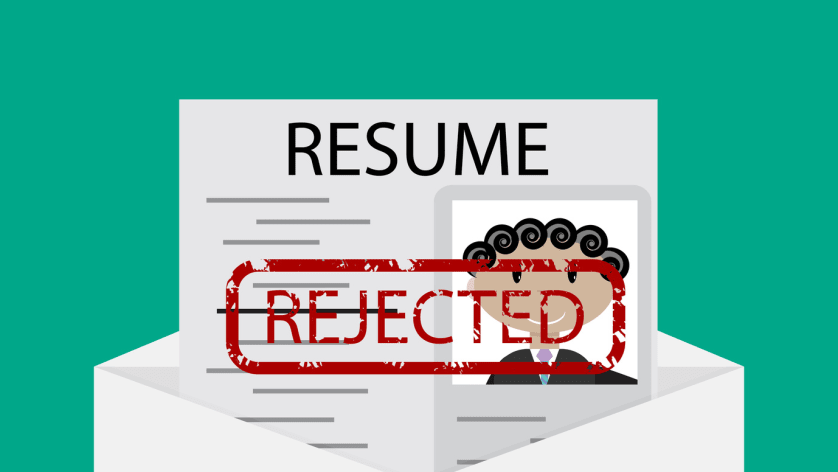Didn't get the dev job? 4 tips on how to deal with it better

This is about the email no one wants to receive. It begins with, "We regret to inform you..." and ends with the question, "What did I do wrong?"
Although everyone claims that programmers are in high demand and can choose their job, you didn't get the dev job you really wanted.
How should you react now? First you have to realize that rejection is a central part of life. Especially when you are actively looking for a job, you often don't get as many job offers as when you are not looking for a job.
Deleting all contact information and pretending the interview never happened is probably not the smartest move. Instead, you should implement some measures for yourself to make the best of the situation. In the following article there are 4 helpful tips on how you can better cope with such a life situation.
1. Stay positive
It's hard not to take a rejection personally, instead recognizing that there are a variety of factors that influence the hiring decision. Maybe you had the right skills for the job, but the culture fit wasn't right. Or, if necessary, it was already planned in advance to fill the position internally. Whatever the reason, it's important not to let the experience disappoint you too much.
Give yourself some time, call a friend, go for a walk, order a pizza - do whatever you can to process your feelings and don't let it get you down. Remember, even if you didn't get the job and may have financial setbacks as a result or won't achieve your career goal right away, this situation isn't the absolute worst case. As the saying goes, "everything passes".
2. Learn from this experience
Once the initial sting has subsided, step back and reflect on the situation.
Start by analyzing the position itself. Was the company looking for a specific skill set? Did your work experience match the job? Try to identify potential skill gaps and work to fill them. For example, if you plan to land a job in frontend development, a UI/UX design course could help your resume stand out to potential employers.
When reflecting on the interview, think about your behavior and what you could improve for next time. For example, were there questions for which you couldn't think of a suitable answer? Then write them down and prepare an adequate answer. You are then super prepared for the next interview.
In addition, it is becoming increasingly important for companies to find a candidate who fits the company. The culture fit is often rated even higher than the professional competence of candidates.
Before your next interview, do a dry run with a very direct and honest friend. Negative idiosyncrasies in body language that you didn't even know you had and non-ideal statements can be identified.
3. Ask for feedback
Some employers may give you a clue as to why they chose another candidate for this position. It's even possible that you know the reason without having to explicitly ask. However, there are also cases where you can only scratch your head in disbelief. In this case, it is helpful to ask about the reason for the decision-making. But there are also things you should keep in mind. Don't ask for feedback unless you've met the HR manager in person. Also note that you may not receive an open response due to legal concerns on the part of the employer. The best way to receive constructive criticism is to start with a thank you letter. Let the company know that you would appreciate written or personal feedback and the time it takes to give it. Also, make sure your questions are positive and specific. "Any advice on how I could improve my interviewing style" is better than "Why didn't you hire me".
4. Don't hold grudges
While it's normal to feel a little hurt or animosity toward the company after a rejection, it's important not to let your hurt feelings affect your judgment. Always be professional and thank the interviewer for their time and wish them well.
If you are still interested in working for the employer, ask the recruiter to keep you on record for future postings. If possible, connect with the HR manager via LinkedIn or Xing so that contact is not lost.
Transforming rejection into resilience:
Once you've followed the steps above, remember not to get too caught up in the situation. It's more important that you look ahead and get back to new applications and job opportunities quickly. While rejection is often painful, it can also teach you a lot about yourself. What you learn will prove to be very rewarding once you get offered the right job.
















